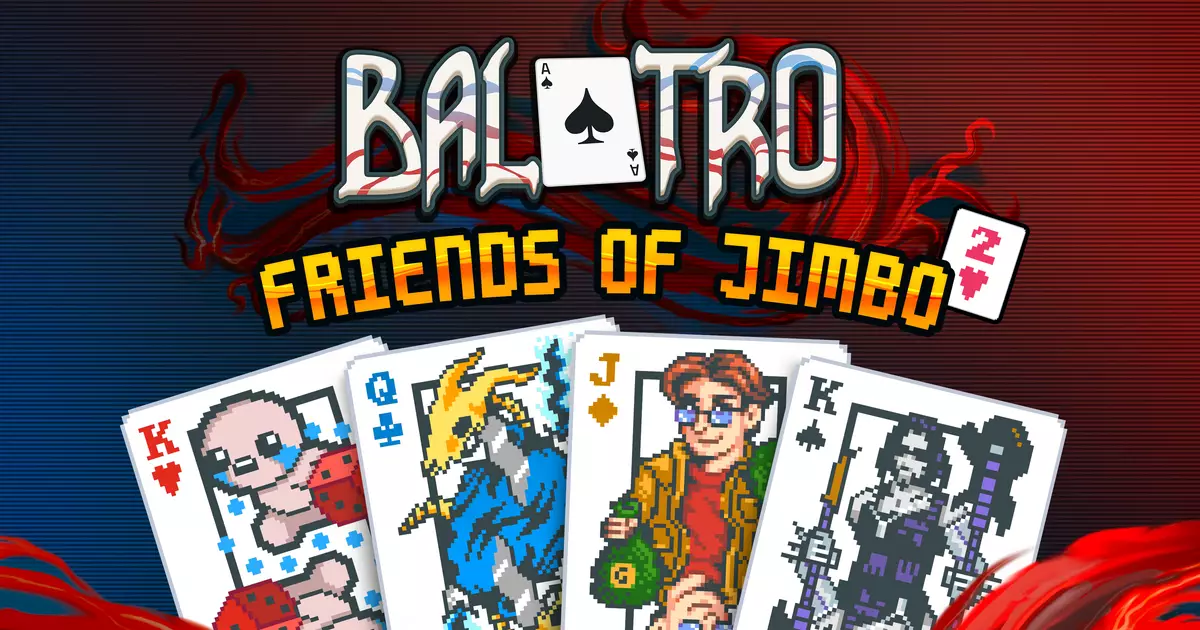I recently found myself immersed in an intriguing game called Balatro for a solid hour, which left me with a mix of intrigue and disappointment. On the surface, it presents a captivating premise that initially draws you in with its engaging mechanics and vibrant visuals. Yet, as I navigated its simplistic gameplay, a nagging feeling arose—it felt like a trap, a fleeting high that would ultimately lead to long-term disconnection. While I enjoyed my time, I decided to uninstall it, realizing that I might not be the target audience meant to endure its allure.
Balatro recently released a significant update featuring a new batch of themed card art inspired by popular games such as Binding Of Isaac and Cyberpunk 2077. While these additions provide a fresh coat of paint, they’re essentially cosmetic changes that do little to alter gameplay dynamics. Players can access this new art through a “Customize Deck” menu—though the phrase itself feels clunky and uninspired. Earlier updates also introduced card aesthetics linked to games like The Witcher 3 and Among Us. Although these graphical innovations are somewhat enticing, they cannot resolve the core issue of maintaining player engagement beyond the short-term thrill.
The mixed reviews of Balatro have sparked debate among gaming communities, evidenced by the enthusiastic endorsement from Katharine of Rock, Paper, Shotgun. She describes the game as a joyous celebration of number-crunching and skill mastery. Her glowing recommendation paints a compelling picture of Balatro as a playground for achievement-driven players, one that hands out “scalpels” to explore the underlying systems, pushing players to excel against formidable odds. It’s a view that resonates with many, as gaming often serves as an avenue for self-discovery and triumph, even amidst challenges.
Despite Katharine’s compelling arguments and her inevitable tenure with the game, I felt disconnected after my brief interaction. It’s possible that Balatro thrives better for dedicated players who appreciate its complexity and the satisfaction that comes from mastering its systems. My experience contrasted sharply with this viewpoint. I recognize that two players can have dramatically different responses to the same game, leading to a dissonance in expectations. Is the game genuinely engaging or just a fleeting dopamine hit that quickly fades?
Ultimately, Balatro embodies the adage of ‘different strokes for different folks.’ While it offers enjoyable, albeit temporary, moments for many, it left me yearning for a deeper connection. Its unique updates may entice dedicated enthusiasts with a penchant for aesthetic customization and achievable goals, but it will likely fail to grasp those who seek more substance and longevity. In my short-lived encounter, I learned that while some may embrace the challenge and surrender to the thrill, there exists a significant sector of players, including myself, who prioritize enduring engagement over momentary gratification. Balatro may resonate with a niche audience, but as for me, I’ll opt for games that offer deeper narrative arcs and lasting satisfaction.


Leave a Reply